Partner with the union who'll take you under their wing.
About the FAAA
Who Are We
We are the industry union who represents cabin crew in Australia. FAAA National Division has a proud record of advancing and protecting the industrial interests of domestic and regional cabin crew for over 60 years.
Today we remain a strong, united collective of Cabin Crew, operating 12 airlines across the Australian domestic-regional aviation network. We are serious about the important role we play in the aviation sector.
We take an active interest in our working conditions and are intent on shaping our industry to make it progressively safer.
Professional Services
Our Industrial Staff have a highly specialised understanding of our industry and provide our Members with professional advice, representation to resolve industrial issues, to protect our collective interests and advocate for improved working conditions and pay.
Your IR Team - Industrial Relations Managers – Christine Donayre, Gaurav Singh, Stan Koulouris
Supporting You
Our Member Support Staff and Delegates assist our Members by responding to general workplace relations enquiries, communicating requested information for incidence-based claims, assisting with workplace preparation and attending as support during meetings with your manager.
All our Member Support team have current or past experience as operating Flight Attendants. Our Delegate Training Program is comprehensive and strengthens our organisation’s knowledge base out on line.
Senior Industrial Organiser – Julia Armitt
Member Support Officer – Michael Shaw

Membership & Accounts
Our Membership & Financial Accounts Staff look after your member records, the receipt of your membership contributions, processing payments and administration associated with your Membership.
Financial Accounts Manager – Trish Buchan
Membership Officer – Selina Lee
Membership Administrator – Yvonne Aaron

Join to multiply your power
In everything we do, we believe Cabin Crew's pay and conditions must recognise our safety, security, first aid and service responsibilities.
Joining forces with other Cabin Crew provides an organised platform to consult with regulators and airlines to set fair standards, entitlements and pay for the unique role we perform.
Established in 1956, flight attendants across airlines and generations are well aware of the need for regulators, airlines and management to get the balance right, not purely by observations, but by well organised up-to-date representations of the challenges faced by Cabin Crew as operators at altitude and on the ground.
FAAA is the only Airline Industry body that solely represents Cabin Crew. We are 100% dedicated to advancing our Members’ interests through collective bargaining, proactive consultation with airline management or if necessary dispute resolution, education, engagement with regulators and 24/7 member support.
By adding your voice, our negotiating power is multiplied further to protect previously fought-for entitlements, continuously improve working conditions and ensure our pay fairly represents the true value each of us contribute to making the aviation sector safer.
Membership with the FAAA includes
Collective Representation
- Enterprise Bargaining
- Major Workplace Change
- Airline-Union Consultative Committees
- Enterprise Agreement Dispute Resolution
- Award conditions and pay
Individual Advice, Support and Information
- Clarification of your working conditions and entitlements
- Advice and support for Dispute or Grievance Resolution
- Support during Aviation Incidents and Workplace Investigations
- Workers’ Compensation advice, information and representation
Regular Publications of Industry News and Workplace Representation Updates
After Hours/Emergency Phone Assistance
Our Benefits
Tax Advice
At the end of each financial year, our Members receive a publication to assist with claiming tax deductible expenses.
We also include a list of Tax Agents who are familiar with claims and taxation ruling/s applicable to Flight Attendants. Located in almost every capital city, as well as some regional centres, our preferred Tax Agents offer competitive rates to FAAA Members.
Our 2017 Newsletter is out now.
Accident & Illness Insurance
It’s safe to say Cabin Crew lead busy lives on the ground and enjoy your time away on holidays. However, none of us ever expect to become sick or injured to the point where we’re away from work for weeks on end. In many cases, the journey to/from work is no longer covered under work-related insurance and if an accident occurs on the way to or home from work, you can find yourself unprotected.
It is a fact of life that when illness or injury strikes, the last thing you want to be worried about is money. Whether you are permanent full time, temporary or permanent part time or casual Cabin Crew, IFS Insurance Solutions in conjunction with the FAAA, has developed an Accident & Illness (Income Protection) insurance policy specifically designed to meet the needs of FAAA members.
FAAA Accident & Illness Protection policy can provide you with the following benefits:
- 24 hour a day, 365 days a year worldwide cover.
- The ability to insure up to 100% of your gross weekly income, including allowances, to a maximum of $2,000 gross per week.
- Choice of excess period (14, 21, 28, 60 or 90 days).
For the full range of benefits visit the FAAA Accident & Illness Protection Insurance website - http://www.faaainsurance.com.au/
Travel Benefits
As an FAAA Member, you are entitled to discounted Membership with Breakaway Travelclub. Contact us today for your special FAAA Promo Code to start your Breakaway Travelclub Membership:
http://www.travelclub.com.au/membership/
Key Benefits:
- Confirmed space accessibility to live exclusive interline deals.
- Often family and partners are able to access your discounts when travelling with you.
- Regular updates with the latest specials.
- Accommodation specials at over 44,000 hotels in more than 185 countries.
- A reservations team who can answer any questions and make bookings.
Plus a host of other travel benefits.
Health Fund
rt health is the FAAA’s recommended healthcare cover for our members.
Our well-established proud association with rt health is built on our mutual high value placed on delivering great customer service in industry. Visit the FAAA Health Plan website - https://www.rthealthfund.com.au/faaa
Whether you’re new to the airline industry or currently looking at your healthcare needs, you can obtain an OBLIGATION FREE QUOTE from rt health - You can Compare Covers for Premium, Smart or Value healthcare plans for Singles, Couples or Family Cover here: https://www.rthealthfund.com.au/health-insurance.
Skin Products
FAAA has partnered with Seacret Direct to bring great discounts to moisturising products to assist with the drying effects of working in a pressurised aircraft cabin.
FAAA Members are entitled to become a VIP Seacret Customer. Product Orders are able to be placed online and delivered to your home in a short turnaround time.
Visit the FAAA Seacret Direct website to become a VIP Customer and receive great discounts on a range of moisturising skin and hair products: http://www.seacretdirect.com/memberbenefitsfaaa/en/au
Superannuation
Coming soon.
Household Goods
FAAA National Division has a well-established and proud affiliation with Union Shopper.
Union Shopper provides FAAA Members with the best possible deals on an ever-increasing range of consumer and lifestyle products and services through collective buying power.
While your Membership at the FAAA works to continually improve take home pay, Union shopper will shop around to get the best deal for you to ensure your earned dollars stay in your pocket!
Visit Union Shopper today and start saving - http://www.unionshopper.com.au
Our History
- 1956
- 1960s
- 1970s
- 1975
- 1980s
- 1990s
- 2000s
- 2010s
1956 - Elaine Smith
- Airline Hostesses Association (AHA) founded
- Elaine Smith is the first President
- First general meeting attended by 40 Flight Attendants
- "Australia's most photographic trade union...Forty shapely and vivacious members lent glamour to the occasion."
- In 1957, first log of claims served on TAA & ANA. Duty hours limited to 48/week

1960's
- March 1963, the Overseas branch of the AHA was formed with 24 hostesses
- 1963 - First Airline Hostesses' Award came into effect
- Increased salaries
- Rest breaks at home base of 10 hours for duties of 6 or less hour's duration, 11 hours for duties of more than 6 and up to 8 hours duration and 13 hours for tours of duty or more than 11 hours duration.
- 1966 - After much negotiation following the 1963 award, the threat of stop work meetings to consider strike action and conciliation by the Conciliation and Arbitration Commission the Airline Hostesses’ Award 1966 came into effect:
- Significant pay increases
- Introduction of overtime and overnight allowance
- Introduction of duty hour limitations and rest breaks 14 hours rest for duties of more than 8 hours and up to 11 hours
- 17 hours rest duties of more than 11 hours
- 4 DDO's per fortnight

1970's
- Air hostesses were 'no longer just girls who serve coffee or tea'
- Became militant, demanded recognition and at forefront of women’s rights
- 1970, Qantas International female flight attendants, members of the AHA went on strike for 7 days
- 29% increase in salaries
- 1974 - retirement for Qantas flight attendants raised to 55
- The Airline Hostesses’ Award 1973 came into effect
- A 28% increase in salaries, introduction of Grooming Allowance (hair, laundry, shoe and stocking allowance)
- Introduction of the first ever hostess bidding for roster system in Australia – women could have some say and control in balancing work and lifestyle
- Retirement age raised from 35 to 40 years
- Air hostesses were allowed to continue to work after getting married
- 1975, AHA became an affiliate of the ACTU, fought for autonomy from the Pilots’ Association

1975 - The 'Old Boilers' Strike
- Negotiations in the Arbitration Commission failed to reach agreement and this led to the first stoppage of all domestic airline hostesses in Australia.
- Reginald Ansett retaliated with his infamous speech and coined the derogatory phrases ‘a batch of old boilers’ and ‘glorified waitresses’
- Hostesses returned to work on the second day of the dispute with an increase in salaries ranging from 32% to 75%. Other gains achieved were:
- Incremental pay scale increased from 3 to 8 years
- Introduction of Pregnancy Leave
- Substantial increases in all allowances
- Introduction of DTA
- Annual leave increased from 5 to 6 weeks per year
- The retirement age was increased to 45 years.
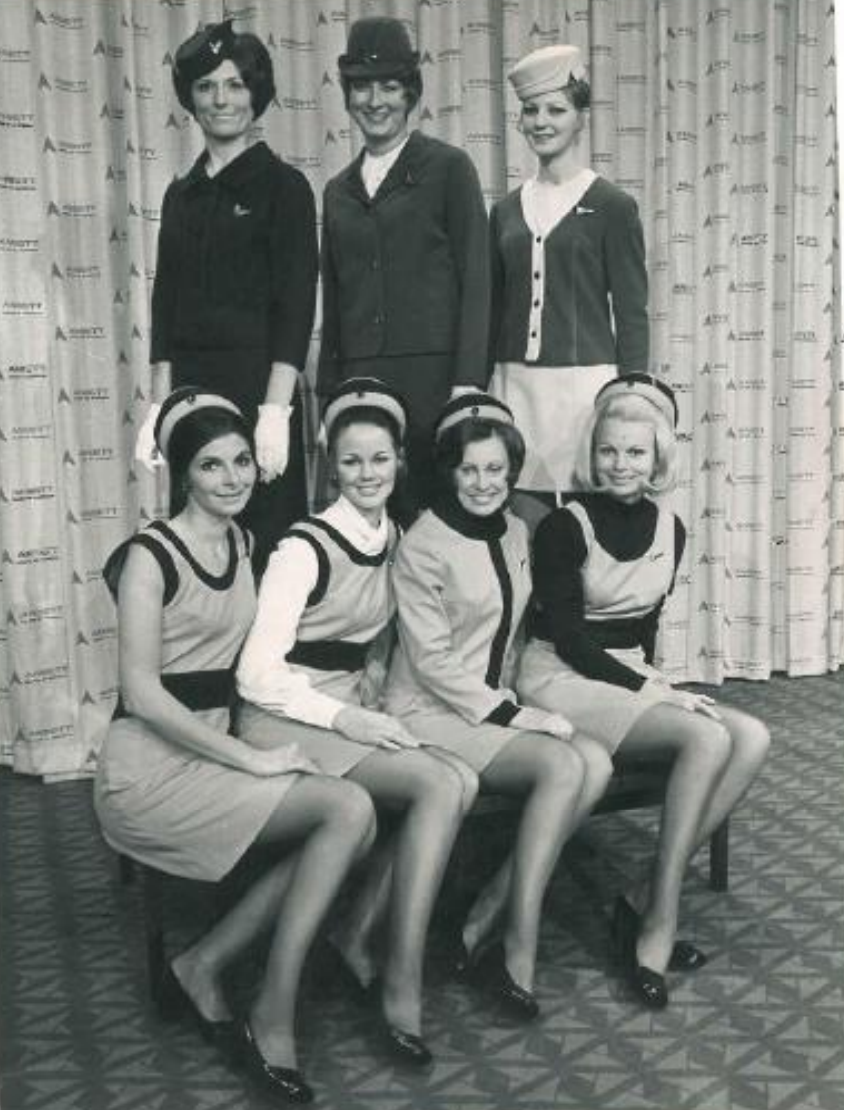
1980s - TAA Employed The First 2 Male Flight Attendants
- 1981 - April 7 Day Strike
- Stop work meetings, which were originally intended to last 24 hours turned into a strike of seven days duration. Gains achieved were:
- 10% shift loading
- Career structure - On board Manager position – SFA, Senior F27/F28
- Increases in Grooming Allowance
- Ability to bid in the Open Time
- Improved maternity leave
- Cosmetic leave
- Introduction of employer, employee committees on matters including safety, inflight procedures, rostering and general award improvements
- Air hostess incomes were in the second high income bracket for women in Australia (but only at half of male workers)
- Gained the right for flight attendants to wear:
- Spectacles
- Braces on their teeth
- A shoe style of their choice in the cabin (providing they were a closed style and the correct colour)
- Gained an award provision for Study Leave
- Gained Family Leave provisions which enabled males to have time off in the event of the birth of a child
- Developed procedures for counselling and discipline of flight attendants
- Developed Grievance Procedures
- Provision of AHA representation at any enquiries with the Government or the airlines following an incident or accident
- 1983 - The AHA won equal opportunity for Qantas female cabin crew removing the restricted practices of the number of female cabin crew per flight (3) and promotion
- 1984 - Name change to AFAA
- Weight restrictions on flight attendants were replaced with judgment of appearance in uniform.
- 1985 - The Association was an active participant in the ACTU Child Care Committee and in 1985 distributed surveys to assess the requirements of childcare facilities amongst airport workers.
- 1985 - The Association called an industry meeting of domestic airline companies and aircrew unions to discuss the issue of cabin baggage.
- Rules regarding the cabin baggage limits were drawn up and a system of dealing with the cabin baggage problem was agreed. Introduction of P/As, cabin baggage test modules & education of passengers
- 1986 - The Association entered into a dispute with Ansett Airlines when it refused to issue short-sleeved shirts to male flight attendants. Following an inspection tour, Conciliation and Arbitration Commission found in favour of AFAA
- 1987 - The Association actively pursued the government and the airlines to ban smoking on aircraft due to the health risk smoking passengers posed to flight attendants. On December 1, 1987 a smoking ban on domestic flights of less than 90 minutes was introduced via federal legislation.
- 1988 – AFAA formulated AIDS/HIV policy
- 1988 – Air Queensland folded – FAAA negotiated with Australian Airlines to take cabin crew & recognise years of service.
- 1989 – Pilots dispute
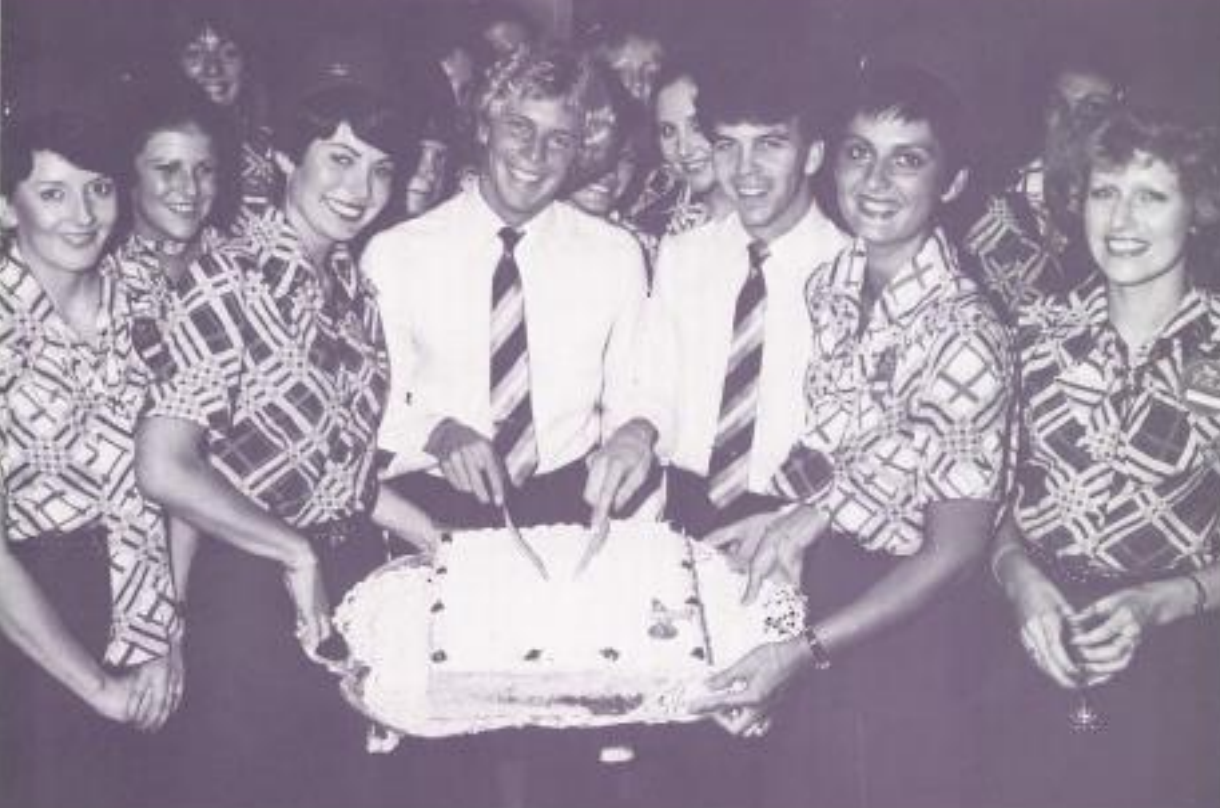


1990s
- 1990 - Deregulation of aviation industry – Compass Mk1 (collapsed 20 December 1991) & 2 (took off again 31 August 1992 with MD80’s), Impulse 1994. Australian Airlines entered into wet lease arrangement with National Jet Systems (Airlink) to provide services on regional network on east coast & Alice Springs – beginning of outsourcing but FAAA negotiated similar wages and conditions of employment.
- Introduction of preferential bidding system, firstly in Qantas then Australian & Ansett
- In June 1992 Qantas and Australian Airlines merged. FAAA entered into negotiations with Qantas regarding
- The planned flying route structure of the merged airline
- The bases available to flight attendants of the merged airline
- Award matters and non-award eg long service leave, staff travel and superannuation.
- The distinction between Short Haul (domestic) and Long Haul (International) flying including divisional transfer arrangements between the two types of flying
- Staff concessional travel agreements
- Merged seniority
- − As part of the discussions, the FAAA fought for displaced QF/TN ground staff facing redundancy to be offered long haul cabin crew positions before external recruitment
- 1992 - Amalgamation between the AFAA and AICCA was voted in by the members. The two organisations merged to become the Flight Attendants’ Association of Australia on June 1, 1992
- Stop work meetings were planned at Australian Airlines to discuss the merger and arbitration case. In July 1992 an Enterprise Bargaining Agreement was reached. The main features of this Agreement were:
- 10% pay increase
- Introduction of Carer’s Leave which allowed flight attendants to use 7 days per year of their sick leave to care for an immediate family member with an illness.
- The in lieu of shift penalty redistributed to weekends and unsociable hours rather than a flat amount.
- Introduction of a part time system of work where flight attendants bid for a half block each month.
- Variable crewing on some sectors – delivering 5% pay increase
- 1993 – November 1, East West ceased operations, merged with Ansett. Cabin crew offered jobs in Ansett
- 1993 - First Short haul to Long haul transfer school
- December 1994 – Qantas Integration Award dealing with seniority, transfers, redundancy, QF subsidiaries
- First Award for Regional Airline flight attendants
- Regulation of alcohol services on flights following alcohol-fuelled assaults on cabin crew
- In Cabin Air Quality campaign – FAAA took industrial stance on Bae 146, bought issue to world stage, FAAA addressed members of the US Congress and the Federal Aviation Administration
- Ansett agrees to more flexible work arrangements where cabin crew can release and pick up duties.
- Qantas & Ansett employ casual cabin crew. FAAA negotiates EBA’s
- Early retirement provisions negotiated for Qantas shorthaul cabin crew- 20 years service or 45 years of age.
- Part time provisions for Qantas shorthaul CSMs
- August 11 1993 Career progression negotiated for regional crew – continues today and is available to QantasLink/Jetstar/MAM into QD
- December 1995 – Skywest flight attendants voted to withdraw their labour for 11 days (longest strike by flight attendants in Association’s history) after 5 months of fruitless negotiations. Skywest crew were under a very basic General Aviation Award designed as a 1 year interim measure to cover initial low hours of flying. Achieved same wage rates as Ansett, Qantas short haul and NJS cabin crew, improved work rules, meal penalties, DTA, overtime & ability to transfer to Ansett mainline – in all a 35% increase! Dispute settled Christmas Eve 1995.
- First Award for Ansett International flight attendants – 30% pay increase & improvements in conditions
- 1996 – Mutual Recognition Bill Australia and New Zealand became single aviation market
- April 1997 – ATO case on DTA
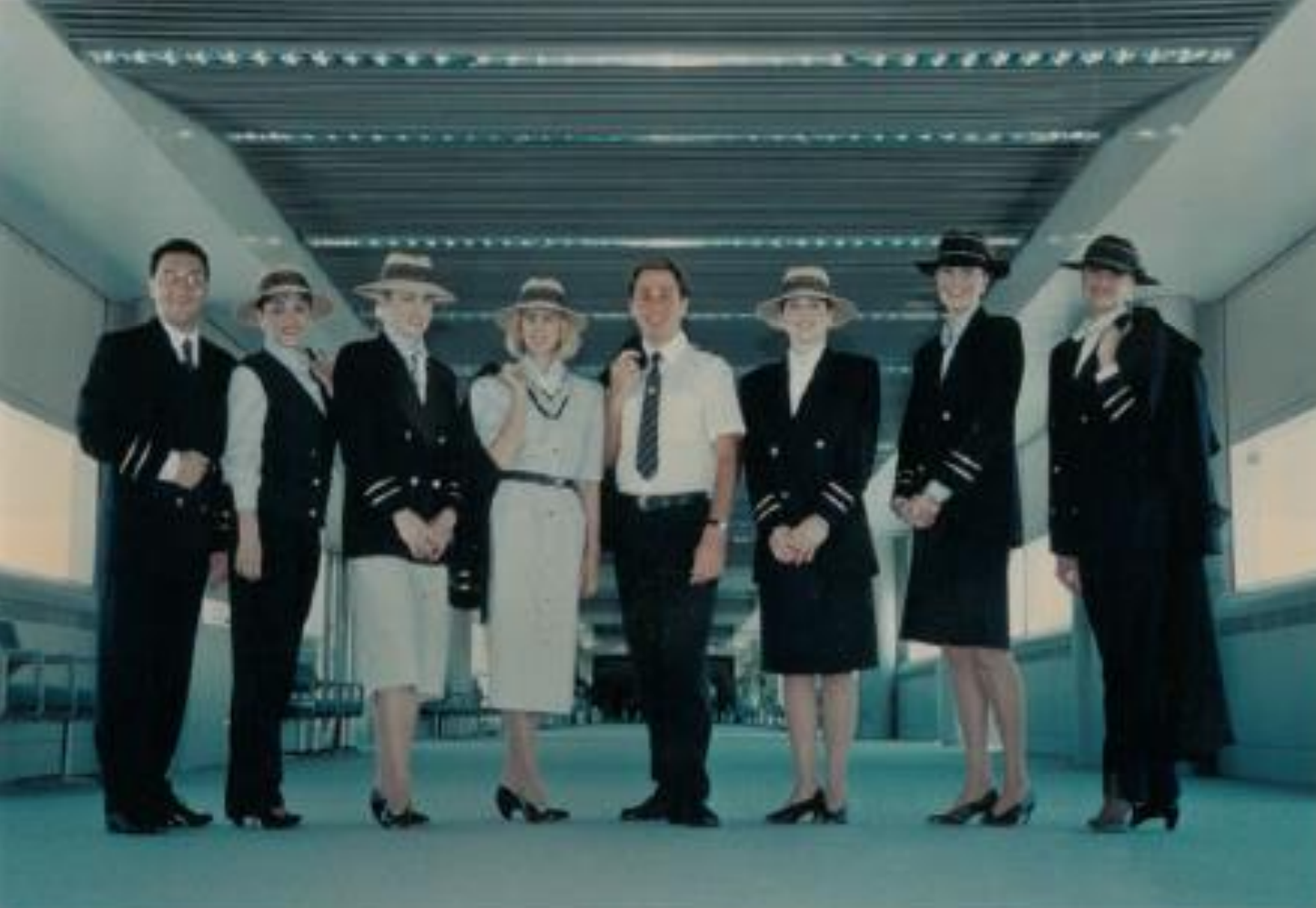

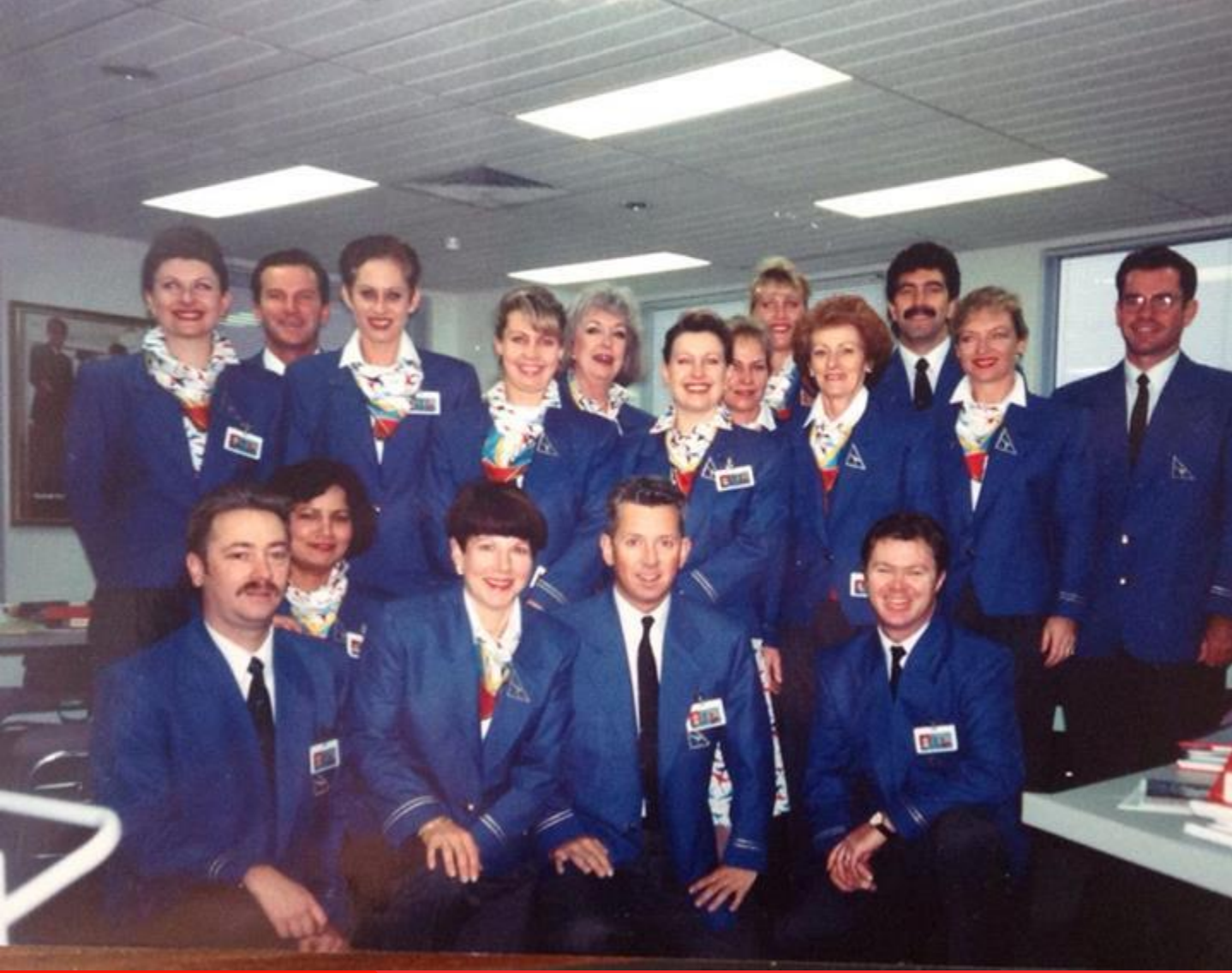
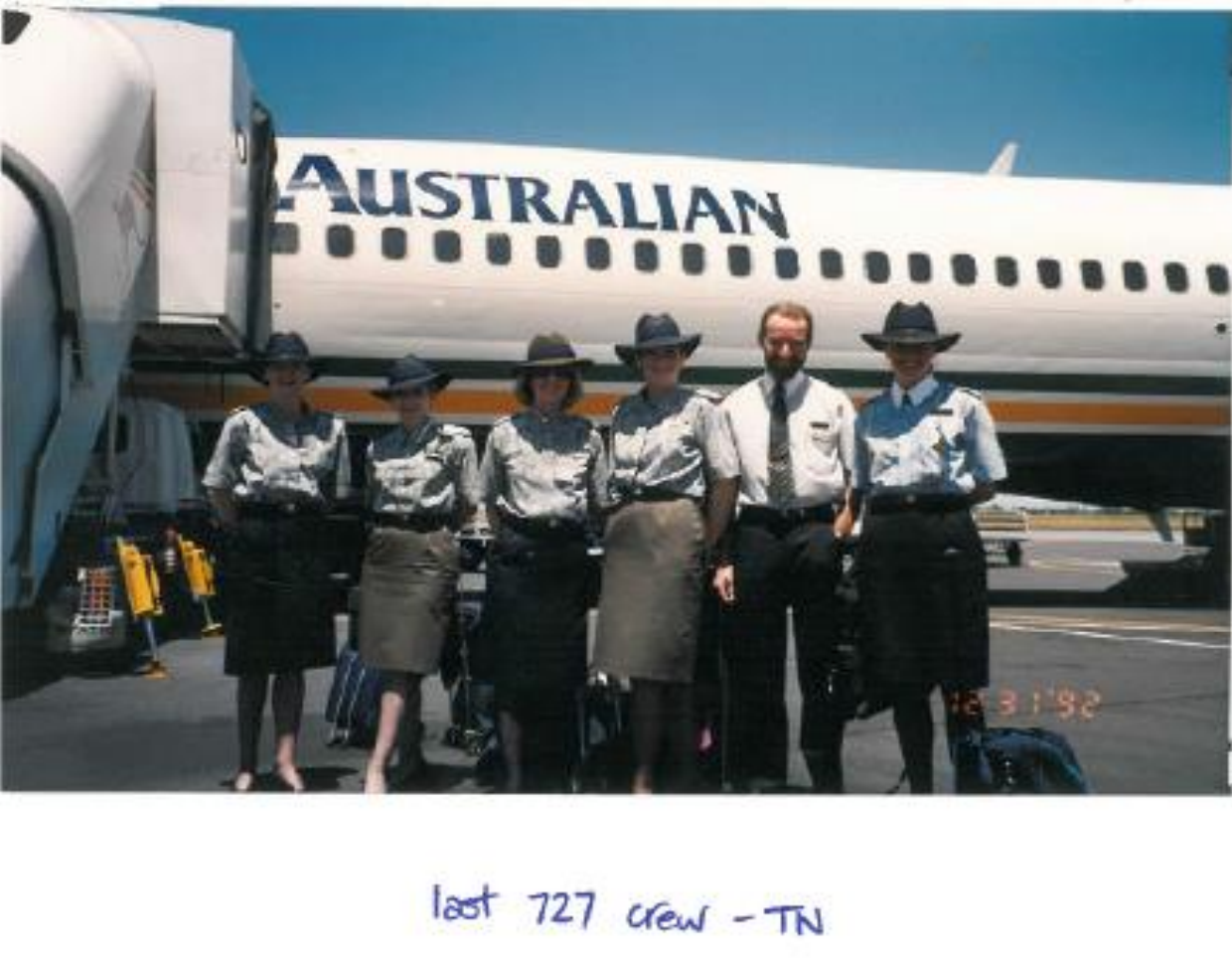
2000s
- Saw introduction of low cost carriers. Virgin Blue launched in August 2000, Impulse bought B717 low cost Eastern trunk routes.
- September 11 saw the aviation industry change forever.
- Collapse of Ansett which meant 2500 Ansett Flight Attendants lost their jobs.
- The FAAA approach all airlines to recruit displaced Ansett Flight Attendants.
- Provided EAP post the Ansett collapse.
- Hundreds of Ex-Ansett employees placed, not only in Australia but also overseas.
- Qantas EBA V – members agree to a wage freeze.
- Flexible Work Arrangements agreed.
- Stopped the Impulse “Unit” trust holding and negotiated an EBA for Impulse Flight Attendants. Qantas wet lease arrangement with Impulse and buys in 2001.
- FAAA Domestic Division agreed to take an extra 150 Long Haul Flight Attendants to guarantee them jobs and certainty due to the world downturn in International travel.
- 2002 - Southern Airlines closure – FAAA negotiated for Southern Flight Attendants to have direct entry into Qantas Short Haul with appropriate pay and conditions.
- Negotiated Regional Flying for Qantas Short Haul Flight Attendants.
- Negotiated an EBA for casual crew in MAM.
- Achieved permanency for some MAM Casuals.
- 2004 - Regional Express (REX) born out of Kendall and Hazelton
- Achieved Permanent Part Time for Virgin Blue Flight Attendants.
- Qantas launches Jetstar (re-badges B717 aircraft)
- 2005 – NJS (Cobham) receives B717 from Jetstar, re-branded QantasLink, expands into mainline flying CBR, HBA, ADL (7 cabin crew bases)
- 2006 - FAAA participates in ACTU anti-Work Choices campaign. November 2006, Jetstar Intl commenced operations using AWAs for cabin crew (Cabin Crews’ Achilles Heel)
- 50th anniversary of the FAAA
- Qantas Short Haul EBA introduces 2 years maternity leave and permanent part time positions until the child reaches school age
- 2007 – Tiger Airways launched with Howard’s AWA’s for cabin crew
- 2008 – Joint campaign with ASU on Award Modernisation led to intervention by Minister for Employment & Workplace Relations Julia Gillard


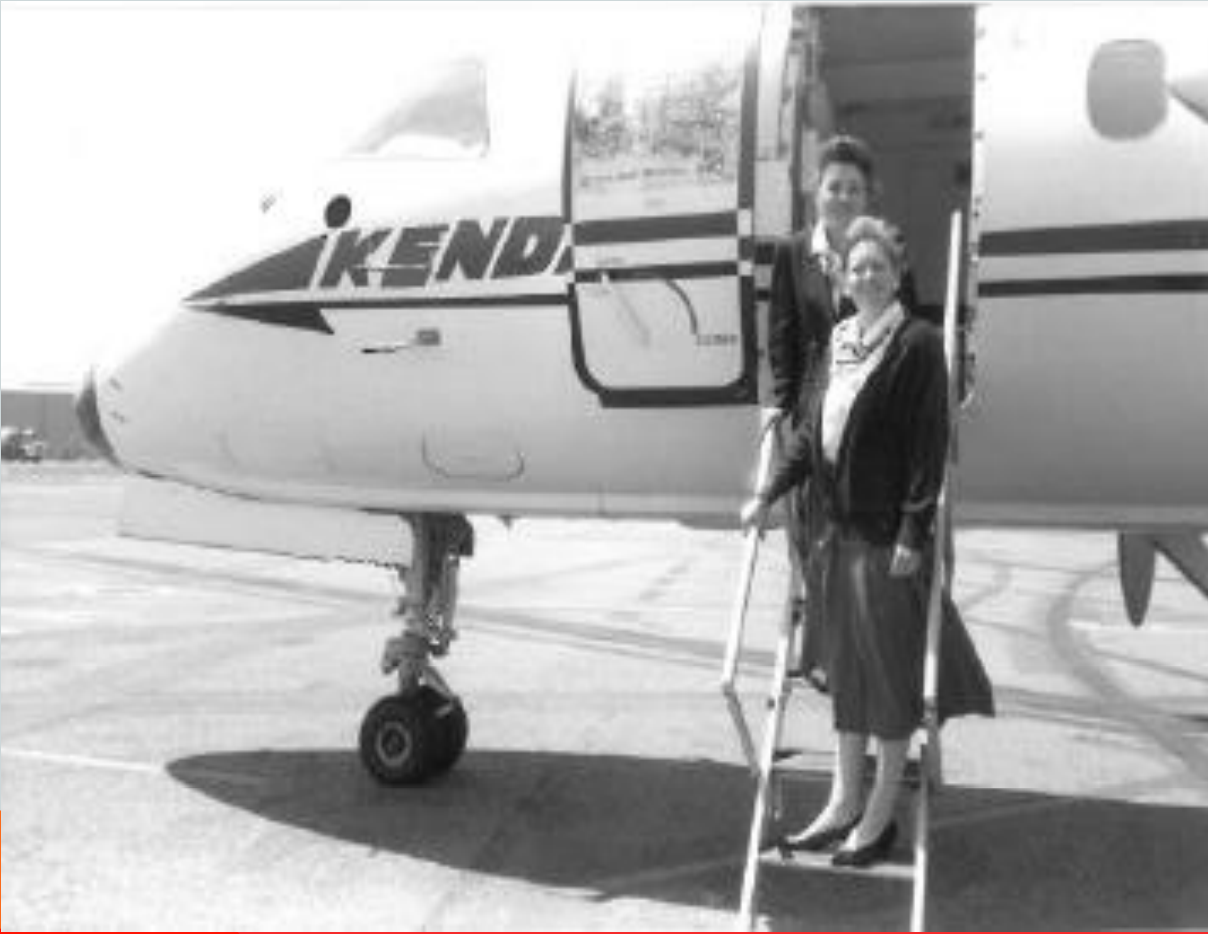
2010s
- 2010 - Aircraft Cabin Crew Modern Award came into effect
- 2011 – Parliamentary Inquiry into Cabin Crew Ratio. Petition with 9000 signatures sent to Government.
- 2013 – Name change to National Division
- Australian aviation back to 2 airlines as it was in the 80’s, QF group (Qantas mainline, Jetstar low cost, QantasLink regional arm, VA mainline, Tigerair low cost, VARA regional)
- 2 airlines but not 2 groups of cabin crew – rather a plethora of cabin crew contracts
- 2014 - On-going discussions regarding the decision in February of Qantas to significantly reduce costs
